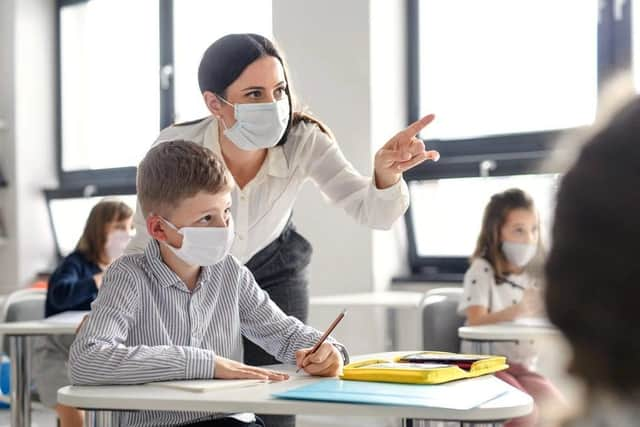Here's when teachers in Milton Keynes could be vaccinated
and live on Freeview channel 276
The latest data released by NHS England shows 152,000 people have been vaccinated against the Coronavirus in Milton Keynes' NHS area.
The success of the vaccination rollout so far, means Milton Keynes residents over 65 are being invited to receive their first doses this week.
Advertisement
Advertisement
This marks the next stage of the rollout nationally, now that over 15 million vaccinations have been administered across the country.


Currently, the Pfizer-BioNTech and Oxford-AstraZeneca vaccines are being administered, while a third from Moderna is due to arrive in spring.
The government met its target of offering a vaccine to everyone in the top four priority groups by 15 February.
These groups included: residents in a care home for older adults and their carers, over 80s and frontline health workers, over 75s, and over 70s and clinically extremely vulnerable people.
Advertisement
Advertisement
The priority groups were decided based on data from the Joint Committee on Vaccination and Immunisation (JCVI) which determined that age was the most important factor in coronavirus deaths.
The government’s aim is to vaccinate the five remaining priority groups by the end of April.
These are: people aged 65 and over, those aged 16-65 with underlying health conditions, people aged 60 and over, people aged 55 and over and people aged 50 and over.
Groups five to nine cover about 17 million people in the UK.
Advertisement
Advertisement
Once those groups have been inoculated, focus will turn to the 21 million people left in the population who are under 50 years old with no underlying health conditions.
It was thought that teachers, police and other key workers would be next in line when the second phase of vaccinations begins.
Vaccines minister Nadhim Zahawi said the next phase could focus on people most at-risk from catching coronavirus due to their profession.
As well as teachers and police officers, he told ITV’s Good Morning Britain on Tuesday 16 February that prison wardens and supermarket workers could also be considered for prioritisation.
Advertisement
Advertisement
However, officials are expected to recommend that people continue to be invited for vaccines based on their age, as opposed to their job.
A source on the Joint Committee on Vaccination and immunisation (JCVI), which advises the government on who should be prioritised for the jab, told The Telegraph that ethnicity was also a prominent factor after age.
"The mortality figures for people from South Asian backgrounds are particularly worrying,” the source said.
“Once we get down to those in their 50s, we want to be reaching out especially to these ethnic minority groups."
Advertisement
Advertisement
The source also said prioritising people based on their profession would "create too much complication" and "risk slowing the rollout down".
Mr Zahawi did not mention age or ethnicity as factors when talking to ITV about prioritisation.
Later, he said ministers were going back to the JCVI to ask “the question as to what should phase two should look like”.
He told BBC Radio 4: “Should we be looking at those in professions such as police officers, teachers or shop workers that come in much greater volumes of the virus, should they be prioritised?
Advertisement
Advertisement
“Or, what do they recommend be the prioritisation so we continue to bear down on serious infection and hospitalisation.
“I think it’s right to ask them the question, to say, clinically do you think we should prioritise a profession because they come into greater contact, or should we be looking at other evidence because we want to make sure those in greatest need receive the vaccines first.”
Teachers have not been found to be at more risk of dying from coronavirus than the general population, according to the Office for National Statistics (ONS).
They also do not appear to catch Covid-19 more than other professions.
Advertisement
Advertisement
Yet there has been public support for teachers to be vaccinated earlier since schools have been found to aid the spread of the virus.
Meanwhile, ethnicity has been shown to be a large risk factor when it comes to contracting the virus and developing severe illness.